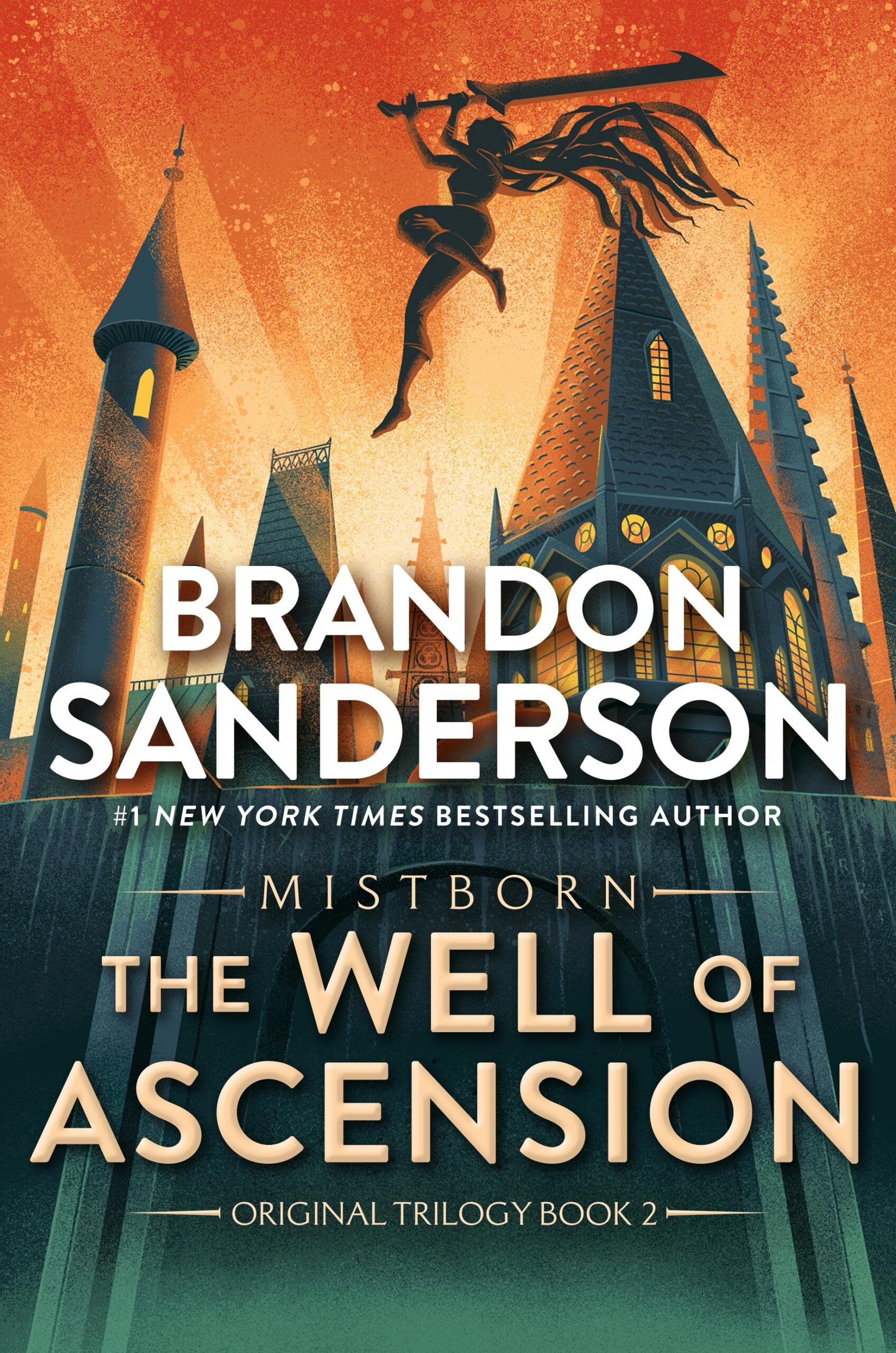
The Well of Ascension
31
by Sanderson, BrandonThe chapter focuses on Philen Frandeu, a merchant who resents being lumped together with the skaa, the lower class in the story’s world. Philen prides himself on his business acumen and wealth, which he believes sets him apart from both the skaa and the noblemen. Despite his success, he feels disdain from the noble Assembly members, who still view him as inferior due to his lack of noble lineage. Philen’s internal monologue reveals his bitterness and determination to prove his worth, especially as the Assembly prepares for a pivotal meeting that could shift power dynamics.
Philen reflects on his past as an intermediary in illegal trades under the Lord Ruler’s regime, a role that allowed him to thrive outside the rigid class system. He takes pride in his ability to manipulate deals and accumulate wealth, seeing himself as superior to both the noblemen and the skaa. His self-given name, Philen Frandeu, symbolizes his desire for recognition and status. As he waits for the Assembly meeting to begin, he notes the absence of King Elend Venture, whom he dismisses with contempt, relishing the thought of his diminished authority.
The tension between Philen and the noblemen is palpable as they interact with polite but superficial courtesy. Lord Penrod’s brief exchange with Philen highlights the underlying animosity and Philen’s smug satisfaction at the nobleman’s earlier illness. Philen’s anticipation grows as he spots a hidden accomplice in the crowd, hinting at a planned upheaval during the meeting. His confidence in his impending triumph over the noblemen underscores his belief that wealth and cunning should outweigh traditional nobility.
The chapter sets the stage for a political confrontation, with Philen poised to challenge the established order. His resentment toward the noblemen and his eagerness to exploit the Assembly’s vulnerabilities reveal his ambition and ruthlessness. The narrative builds suspense around the meeting’s outcome, suggesting that Philen’s actions could have significant consequences for the power structure of Luthadel. His character embodies the themes of class struggle and the corrupting influence of ambition in a society in flux.
FAQs
1. How does Philen Frandeu view himself in relation to the skaa and the noblemen of the Assembly?
Answer:
Philen vehemently rejects being categorized as skaa, drawing a sharp distinction between himself (a merchant) and skaa laborers. While acknowledging that others perceive him as skaa, he considers himself superior to both groups—more resourceful than skaa workers and more talented than noblemen. The text reveals his resentment toward noblemen who dismiss him despite his financial success (“he had become one of the wealthiest men in Luthadel”) and his pride in his self-made identity, exemplified by his adopted lordly name. His internal monologue underscores his belief that merchant acumen trumps hereditary nobility.2. What does Philen’s history as an “intermediary” during the Lord Ruler’s reign reveal about his character and the societal structure of the Final Empire?
Answer:
Philen’s role as an underground dealmaker highlights both his opportunism and the rigid control of the Lord Ruler’s regime. He operated outside the obligators’ oversight, facilitating illegal trades for nobles who needed discretion, which demonstrates his knack for exploiting systemic flaws. This history also exposes contradictions in the Final Empire’s supposed perfection: despite strict regulations, a black market thrived, and “noblemen merchants” relied on non-noble intermediaries like Philen. His retrospective pride in this role (“an empire of his own”) reveals his prioritization of profit over ethics and his disdain for institutional authority.3. Analyze Philen’s attitude toward Elend Venture and Ferson Penrod. What do these interactions suggest about power dynamics in the post-Collapse Luthadel?
Answer:
Philen openly mocks Elend (referring to him as “plain old Elend Venture” with a smile), reflecting his disdain for inherited power unbacked by merit. His faux cordiality toward Penrod (“Why, you’re looking well”) masks smug satisfaction about Penrod’s earlier “ailment”—a likely manipulated setback—revealing his manipulative nature. These interactions illustrate the shifting power structures after the Collapse: former nobles like Penrod retain influence but must negotiate with upstarts like Philen, while idealistic reformers like Elend are vulnerable to schemers who equate authority with transactional cunning rather than legacy or ideals.4. What foreshadowing exists in this chapter regarding Philen’s plans for the Assembly meeting?
Answer:
The text heavily implies Philen is orchestrating a political coup. Key clues include his hidden accomplice in the crowd (“the person he had hidden there”), his satisfaction that Penrod recovered from a suspicious illness (“Pity”), and his remark that the noblemen “would see” after the meeting. His earlier thought—”they had all come around in the end”—suggests covert coercion. The absence of Elend, who is “usually early,” further hints at coordinated disruption. These details collectively foreshadow a calculated move to undermine Elend’s leadership and elevate Philen’s faction.
Quotes
1. “PHILEN FRANDEU WAS NOT SKAA. He had never been skaa. Skaa made things or grew things. Philen sold things. There was an enormous difference between the two.”
This opening declaration establishes Philen’s core identity conflict and class resentment. It introduces the chapter’s exploration of social hierarchy and merchant class identity in post-Collapse Luthadel.
2. “He’d been born with an eye for finances and trades. Give him two rocks, and he’d have a quarry by the end of the week. Give him a spoke, and he’d change it to a fine horse-drawn carriage.”
This boastful self-assessment reveals Philen’s merchant pride and economic worldview. The vivid metaphors demonstrate his self-perception as a financial alchemist who creates value through trade.
3. “Yet, the noblemen ignored him, just because he lacked a valid pedigree.”
This concise statement captures the central tension of Philen’s character - his resentment toward the aristocracy that continues to exclude him despite his economic success. It highlights the persistence of class prejudice.
4. “Well, they would see. After today’s meeting… yes, they would see.”
This ominous foreshadowing reveals Philen’s anticipation of revenge against the nobility. The repetition emphasizes his determination to force recognition from those who scorn him.
